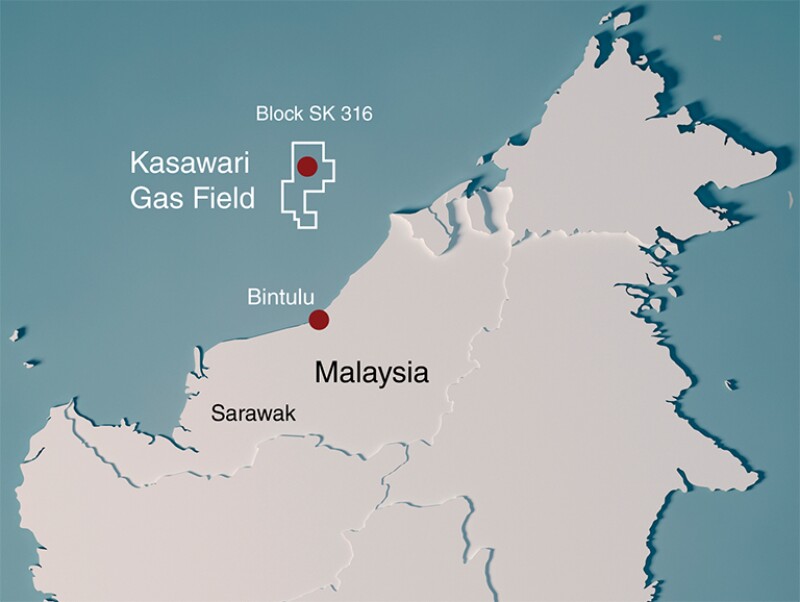McDermott has been tapped by Malaysia Marine and Heavy Engineering Sdn Bhd (MMHE) for a transportation and installation contract related to the Kasawari carbon capture and storage (CCS) project, located offshore Sarawak in East Malaysia.
Under the scope of the contract, McDermott will perform transportation and the structural installation of a 138-km (85-mile) pipeline section, a 15000-metric tonne CCS platform jacket, and bridge connecting to the existing central processing platform. The CCS platform will be installed in a water depth of 108 m.
“Set to become one of the largest offshore CCS projects in the world, the Kasawari CCS award showcases the valuable role we have in supporting our clients through the energy transition,” said Mahesh Swaminathan, McDermott's senior vice president, subsea and floating facilities.
The installation activities will be performed by an unspecified McDermott's heavy-lift and pipelay vessel. The value of the contract was not disclosed.
Operated by Petronas, the Kasawari CCS project is expected to reduce CO2 volume emitted via flaring by 3.3 mtpa, making it one of the largest offshore CCS projects in the world—more than twice the planned injection rate of Norway’s Northern Lights set to begin operations later this year.
Petronas made a final investment decision for the development of the CCS project in November 2022.
Compressed CO2 gathered from the project will be reinjected into the depleted reservoir at the M1 Field via a 16-in. subsea pipeline McDermott will install. Overall, as much as 76 million tonnes of CO2 will be reinjected into the field through the pipeline.
The Kasawari CCS project is scheduled to start operations by the end of 2025 in Block SK316, about 200 km off Bintulu in Sarawak.
The sour gas produced from the Kasawari field itself—about 900 MMcf/D—is expected to be transported to the region’s Bintulu LNG export facility.


